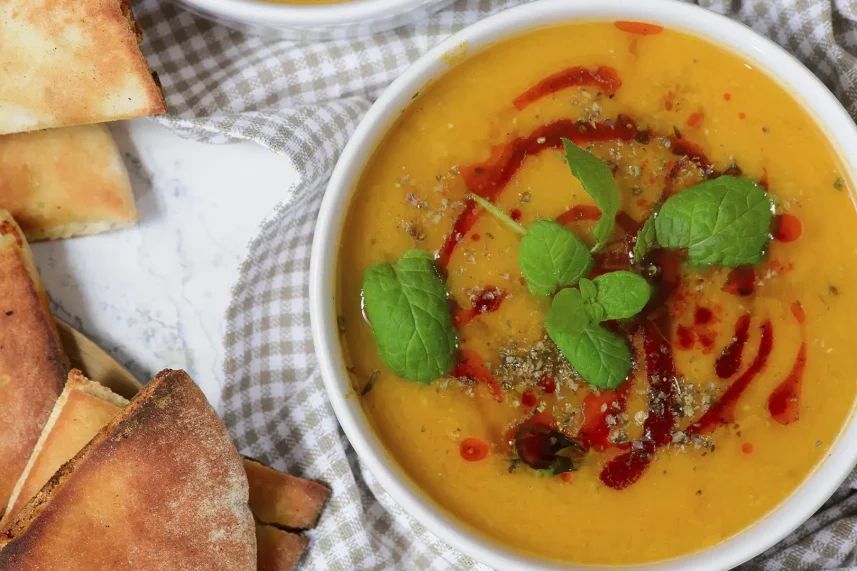
Why Turkish Cuisine Is One of the Healthiest in the World
Turkish cuisine stands out globally not only for its rich flavours and diverse dishes but also for its remarkable health benefits, making Turkish cuisine one of the healthiest in the world. Often associated with the broader Mediterranean diet, it prioritises fresh, natural ingredients and traditional cooking methods that contribute to overall wellbeing. This culinary tradition, deeply rooted in history and culture, offers a delicious path to a healthier lifestyle, moving beyond common misconceptions about its often-indulgent reputation.
The secret behind the healthfulness of Turkish cuisine lies in its emphasis on vegetables, lean proteins, healthy fats, and grains. From vibrant salads and hearty stews to grilled meats and fresh seafood, the typical Turkish meal is designed to nourish the body while tantalising the taste buds. Exploring the components of healthy Turkish food reveals a dietary approach that aligns perfectly with modern nutritional advice, proving that delicious can indeed be incredibly good for you.
The Pillars of Healthy Turkish Food
The foundation of healthy Turkish food is built upon an abundance of fresh, seasonal produce. Vegetables like aubergines, tomatoes, peppers, courgettes, and leafy greens feature prominently in almost every meal, providing a wealth of vitamins, minerals, and dietary fibre. Legumes such as lentils and chickpeas are also staple ingredients, offering plant-based protein and further fibre content, crucial for digestive health and sustained energy. The frequent use of these ingredients means that many traditional Turkish dishes are naturally low in calories but high in essential nutrients, making them ideal for a balanced diet.
Furthermore, the cooking methods employed in Turkish kitchens tend to be gentle and health conscious. Grilling, baking, stewing, and steaming are preferred over deep-frying, which helps to preserve the nutritional integrity of the ingredients. Olive oil, a cornerstone of the Mediterranean diet, is generously used in many Turkish dishes, contributing healthy monounsaturated fats that are beneficial for heart health. This careful preparation, combined with the quality of the raw ingredients, results in meals that are both wholesome and incredibly flavourful without relying on excessive unhealthy fats or sugars.

The Mediterranean Diet Connection
It’s no coincidence that Turkish cuisine shares many similarities with the highly acclaimed Mediterranean diet. Both dietary patterns emphasise whole, unprocessed foods, with a strong focus on plant-based ingredients, lean proteins, and healthy fats. The geographical location of Turkey, bridging Europe and Asia, has historically facilitated a rich exchange of culinary traditions and ingredients with neighbouring Mediterranean countries. This shared heritage means that many of the health benefits attributed to the Mediterranean diet can also be found in Turkish eating habits.
Key commonalities include:
- High consumption of fruits and vegetables: Both diets advocate for a daily intake of a wide variety of fresh produce.
- Use of olive oil: Extra virgin olive oil is the primary source of fat, promoting heart health.
- Emphasis on legumes and grains: These provide essential fibre and complex carbohydrates.
- Moderate consumption of fish and poultry: Lean protein sources are preferred over red meat.
- Limited intake of processed foods and added sugars: A focus on natural, whole ingredients.
This alignment underscores why Turkish cuisine is considered so healthy. It embodies the principles of a diet consistently linked to reduced risks of chronic diseases, including heart disease, type 2 diabetes, and certain cancers. The abundance of antioxidants, anti-inflammatory compounds, and fibre in typical Turkish meals plays a vital role in disease prevention and overall longevity, mirroring the positive outcomes seen in populations adhering to the Mediterranean diet.
Exploring Key Turkish Ingredients and Their Benefits
The healthful nature of Turkish ingredients is a significant factor in the cuisine’s overall nutritional value. Beyond the fresh vegetables and olive oil, a variety of other components contribute to its health benefits. Yogurt, a fermented dairy product, is a staple in Turkish kitchens, consumed plain, in dips like haydari, or as a cooling accompaniment to savoury dishes. It is an excellent source of probiotics, which are beneficial bacteria that support gut health, aid digestion, and boost the immune system. The high protein content of yogurt also contributes to satiety, helping with weight management.
Another prominent Turkish ingredient is bulgur, a whole grain made from cracked wheat. It is commonly used in dishes like kisir (bulgur salad) and as a healthier alternative to rice. Bulgur is rich in fibre, which helps regulate blood sugar levels, promotes healthy digestion, and can lower cholesterol. Herbs and spices, such as mint, parsley, dill, thyme, cumin, and red pepper flakes, are used generously not only for their flavour but also for their numerous health properties, including antioxidant and anti-inflammatory effects. These natural flavour enhancers reduce the need for excessive salt or unhealthy fats.

Traditional Healthy Meals: A Closer Look
When examining traditional healthy meals in Turkish cuisine, several dishes exemplify its nutritional strengths. Mercimek Çorbası (Lentil Soup) is a quintessential example. Made from red lentils, vegetables, and often a touch of mint, it’s a hearty, protein-rich, and fibre-packed soup that is both comforting and incredibly nourishing. Lentils are known for their ability to lower cholesterol and stabilise blood sugar, making this soup an excellent choice for a healthy start or end to any meal.
Another standout is Izgara Balık (Grilled Fish). Turkey’s long coastlines provide access to an abundance of fresh seafood. Grilling fish with a simple marinade of olive oil, lemon, and herbs highlights its natural flavour and preserves its omega-3 fatty acids, which are crucial for brain and heart health. Accompanied by a fresh salad and a side of bulgur, it represents a perfectly balanced and light meal. Even meat dishes like Şiş Kebap (Skewered and Grilled Meat) are typically prepared with lean cuts of meat, grilled to perfection, and served with a generous portion of vegetables, aligning with principles of healthy Turkish food.
Furthermore, dishes like Zeytinyağlı Enginar (Artichokes Cooked in Olive Oil) and Barbunya Pilaki (Pinto Beans in Olive Oil) showcase the emphasis on vegetable-based meals cooked with healthy fats. These cold dishes, often served as appetisers (meze), are packed with fibre, vitamins, and the benefits of olive oil. They embody the philosophy of using fresh, local produce and simple, wholesome cooking techniques, solidifying the reputation of Turkish cuisine as a beacon of healthy eating.

Embracing a Healthy Lifestyle Through Turkish Cuisine
Adopting the principles of Turkish cuisine can be a delicious and effective way to embrace a healthier lifestyle. The emphasis on fresh, whole ingredients and balanced meals aligns perfectly with modern dietary recommendations for disease prevention and overall well-being. From its vibrant salads and legume-rich dishes to its lean grilled meats and abundant use of olive oil, the traditional Turkish diet offers a wide array of options that are both satisfying and incredibly nutritious. It’s a testament to how culinary traditions, when rooted in natural bounty and mindful preparation, can genuinely contribute to a longer, healthier life.
The cultural aspect of Turkish dining, which often involves sharing meals with family and friends, also contributes to its health benefits. Eating slowly, savouring flavours, and engaging in social interaction during meals can improve digestion and reduce stress, elements often overlooked in discussions about healthy eating. This holistic approach, encompassing both the nutritional content of the food and the manner in which it is consumed, further solidifies why Turkish cuisine is indeed one of the healthiest in the world.
So, next time you’re considering your meal options, remember the rich, healthful bounty that Turkish culinary traditions offer. It’s an invitation to explore a world of flavour that’s inherently good for you, proving that delicious food and good health can go hand in hand. Why not embark on your own culinary journey into the world of healthy Turkish food and discover its remarkable benefits for yourself?

There are no comments